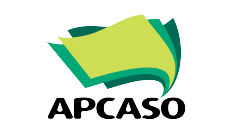In October 2018, a consortium of 11 global health institutions (UNAIDS, UNDP, UNICEF, UNFPA, UN Women, the World Bank, WHO, the Global Financing Facility (GFF), Unitaid, Gavi and the Global Fund to Fight HIV, Tuberculosis and Malaria [Global Fund]) formally launched a new initiative with the release of Towards a Global Action Plan for Healthy Lives and Well-being for All: Uniting to Accelerate Progress towards the Health-Related SDGs. Led by the World Health Organization (WHO), the institutions are responding to a request from the governments of Germany, Ghana and Norway.
The Global Action Plan (GAP) framework was drafted solely by the institutions themselves, without the participation of civil society or other sectors. Thus, the Civil Society Engagement Mechanism for UHC2030 (CSEM) and the Global Fund Advocates Network (GFAN) organized a two-day strategy session on the GAP in December 2018 to consider how, where, when and with whom civil society engagement in the GAP – also referred to by some as the SDG3 Action Plan – can and should be undertaken.
A total of 21 individuals attended all or part of the session in person, with three others participating virtually by speakerphone. About two thirds of attendees were representatives from global or local civil society organizations (CSOs) that focus on advocacy for a specific health condition and/or for overall health. The other participants were representatives from some of the 11 partner institutions involved in developing the GAP.
The strategy session’s main objectives included the following:
- to raise awareness about the GAP, including where it sits within the broader landscape of global health-related initiatives, processes and priorities such as universal health coverage (UHC);
- to provide a forum for partner institutions to provide up-to-date input about content, expected outputs and outcomes, timelines, structures and other key elements of the GAP;
- to identify opportunities for civil society consultation before operationalization of the GAP begins;
- to discuss how strong and meaningful civil society engagement might be structured and sustained; and
- to begin development of a road map for collaborative, coordinated engagement.
During the meeting, civil society participants agreed by consensus on specific next steps. The below action items represent the two most relevant to this EOI.
- CSEM will serve as the ‘host’ of civil society engagement with the GAP
- CSEM will create a new, separate advisory group for the GAP process and other potential civil society coordination efforts

The Civil Society Advisory Group to the Global Action Plan for Healthier Living Process
The CSEM and its partners are forming a special advisory group of civil society and community representatives for its GAP-focused work. This new CS advisory group will be separate from CSEM’s main Advisory Group and could potentially help guide similar work by CSEM in addition to and beyond the GAP initiative, if such opportunities arise. Initially, the group’s responsibilities will include:
- Design and implementation of virtual and face-to-face civil society consultation processes for the GAP
- Consolidate, publish and disseminate civil society inputs to the GAP
- Provide oversight of and facilitating the engagement of civil society in all GAP processes.
- Serve as a liaison to WHO and other partners as part of its oversight role
- Establish small working groups for each accelerator and/or different types of engagement
The group membership will be small made up of no more than 8 individuals.
Any interested individuals should fulfill the following criteria:
- Experience– Must demonstrate extensive experience working in UHC advocacy and organizing and implementing similar engagement processes
- Affiliation– Must be affiliated with and sponsored by a civil society organization
- Cost – The individual’s time spent on the advisory group should be covered by their affiliated organization. Travel to face-to-face civil society consultations may be sponsored by not guaranteed.
- Time Commitment– Individuals must be able to commit their time to Advisory Group phone calls, virtual civils society consultations/webinars and or face-to-face civil society consultation meetings. Calls will likely occur on a monthly basis although the schedule will be up to the advisory group to decide.
- Compliance – Only individuals who fulfill the EOI requirements and submit quality on or before the deadline will be considered. information
We value diversity which includesaffected communities, people with experience at country level, gender, geography, generations (e.g., including young people), and cultural diversity among others not mentioned (ability status, religious background, sexual orientation/gender identity etc.).
Interested individuals should send their expression of interest by email to Eliana Monteforte ([email protected]) with the subject Civil Society AG GAP EOI Submission on or before Friday, February 1stCOB EST. The EOI submission should include:
- The individual’s name, telephone number and email address
- Name of the organization the individual is affiliated with or employed by
- A motivation letter
- A CV/Resume
- Letter of support from the individual’s affiliated organization
Individuals will be selected base on the eligibility criteria described above. The evaluation process will be completed by a select number of evaluators from the CSEM and other CS Constituencies. Any individuals from the CSEM and other CS constituencies who submit an EOI will NOT be part of the evaluation team. Individuals should be notified of the results of this EOI by the first week of February.
Deadline for Submission of EOI is on Friday, 1st February 2019!

